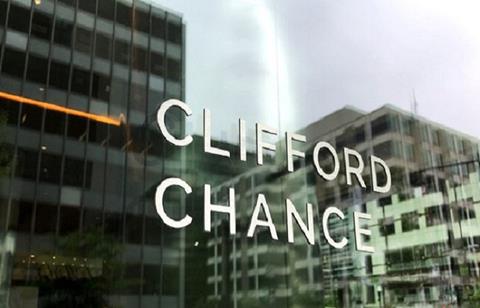
Magic circle law firm Clifford Chance has voluntarily reported its social mobility pay gap for the first time, finding a mean 44% difference in pay between the professional and working classes in 2021.
This gap dropped to 26% between the intermediate and working classes, and 24% between the professional and intermediate classes.
Employees were classed according to their answer to the following question: when you were aged 14 what was the occupation of the main earner in your household? Their responses were then grouped in line with the National Statistics Socio-Economic Classification.
According to this classification, 'professional' encompasses jobs such as teaching, nursing, accountancy and law, 'intermediate' covers hospitality management, secretarial work, and call centre work, among others, while 'working class' relates to jobs such as farm work, public transport driving, cleaning, security and plumbing.
The firm received voluntary information on social mobility from 49% of its employees, and those who chose not to disclose their data were excluded from the calculations.
Clifford Chance also chose to disclose its mean disability pay gap, including partners, which was found to be 34%, with a median difference of 42%. The mean in 2020 was 12%, showing a pay gap increase of 22 percentage points.
The firm reported these statistics alongside its gender, ethnicity and LGBTQ+ pay gap report.
It was found to have a mean hourly gender pay gap of 16.6%, and a median gap of 35%, with mean and median bonus gaps of 34% and 45%, respectively. The mean overall pay gap, including partners, was 65%, a 1% increase from 2020.
Women made up 80% of Clifford Chance's lower quartile of employees in 2021, but the firm was found to have a more equal distribution at the higher levels, including 54% women in the upper quartile.
The firm's overall ethnicity pay gap, including partners, was found to be a mean 53.6%, but when calculated as a median (the mid-point between highest and lowest earners) this dropped to -5.7%. The mean was also found to have risen by 6% since its 2020 report.
Non-white employees made up less than 30% of staff across all quartiles.
For the 81% of Clifford Chance employees who reported their LGBTQ+ status, including partners, the mean pay gap was found to be 31%, and the median -5.7%. The mean pay gap rose by 7% compared with its 2020 report.
In order to drive change, Clifford Chance has developed tailored inclusion strategies, implemented recommendations made by an independent inclusion review of the firm's partnership and promotion practices, introduced a Code of Conduct, created an agile working policy, and formed reverse mentoring partnerships.
Felicity Flynn, associate in the global financial markets practice at Clifford Chance, said: "As part of our ambition to be a force for change in our industry, we've recently undertaken a number of steps to eliminate gendered language in our legal templates.
"Our global policy on gender neutral language demonstrates our efforts to develop and nurture a more inclusive culture, as it helps us to avoid making any wrong assumptions when we don’t otherwise know a person's gender or identity.
"From a personal perspective, it makes me proud to see our firm not only introduce new policies that help us change our rules and become more inclusive, but also commit to embedding those policies in our everyday actions."
Kalela Mwenya, expatriate and employment taxes senior manager and Code of Conduct ambassador, added: “I work with partners and directors to facilitate three-hour workshops where a group of colleagues globally will join discussions about ethics, values and why it's important that we have a Code of Conduct at the firm. We also explore people's own lived experiences to see how the code and its five core principles (Act with Integrity, Be Inclusive, Embrace Challenge, Speak Up and Act Responsibly) would work in practice.
"These workshops have been hugely beneficial for people attending, both in terms of highlighting what we're doing well, but also drawing out areas that we need to focus on more in the future.
"They have provided us all with an understanding of the behaviours expected of us, as we engage with our colleagues and clients alike, helping us feel connected, as one global team, with a common purpose."
Michael Bates, regional managing partner, and Claire Howe, HR director, said in the report: "Since the introduction of Gender Pay Gap reporting in 2017, our mean gender pay gap has narrowed from 20.3% to 16.6% and our mean bonus gap has reduced more substantially from 53.2% to 33.7%
"While we are pleased to see some of our numbers move in the right direction, our pay gaps remain unsatisfactory and progress slower than we would like across all areas of diversity.
"The reporting of this data reminds us that we must maintain focus on inclusivity in both our strategic and day-to-day decisions and actions if we are to accelerate the pace of change and realise our inclusion strategy to change the rules, change the culture and change the lived experience.
"As ever there is work still to do, but we stay true to the belief that nurturing our unique culture, and ensuring it is truly diverse and inclusive, will have the greatest impact on our ability to close our pay gaps over the coming years.
"We are pragmatic about the time we must invest in these efforts before we see more substantial changes in our data, but we are resolute in our ambitions to deliver the equality of opportunity, aspiration, and experience that everyone deserves."




























